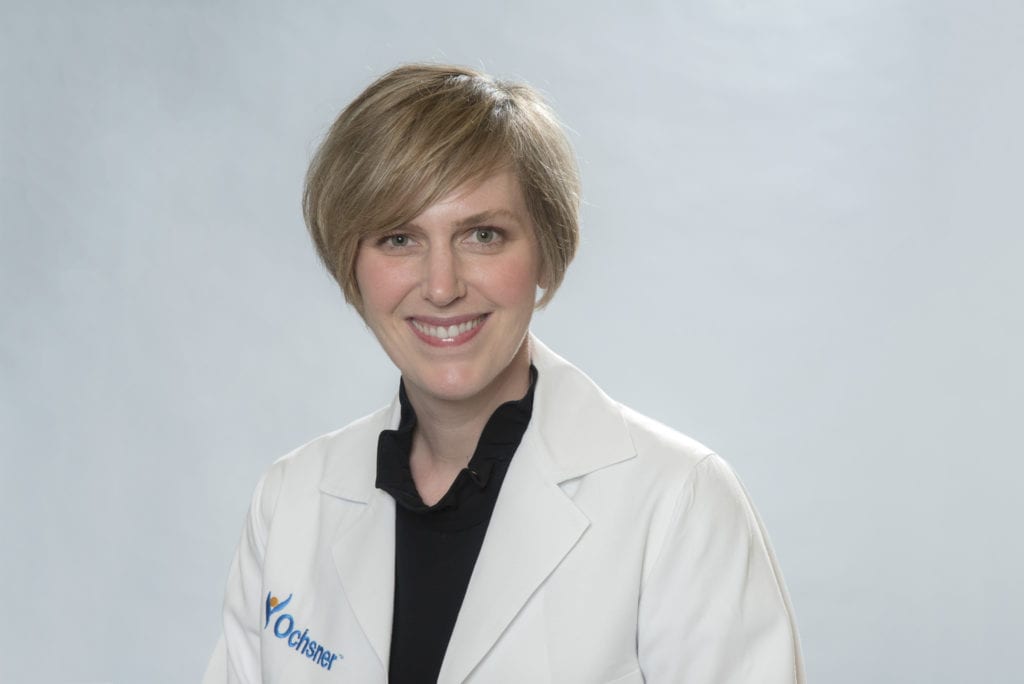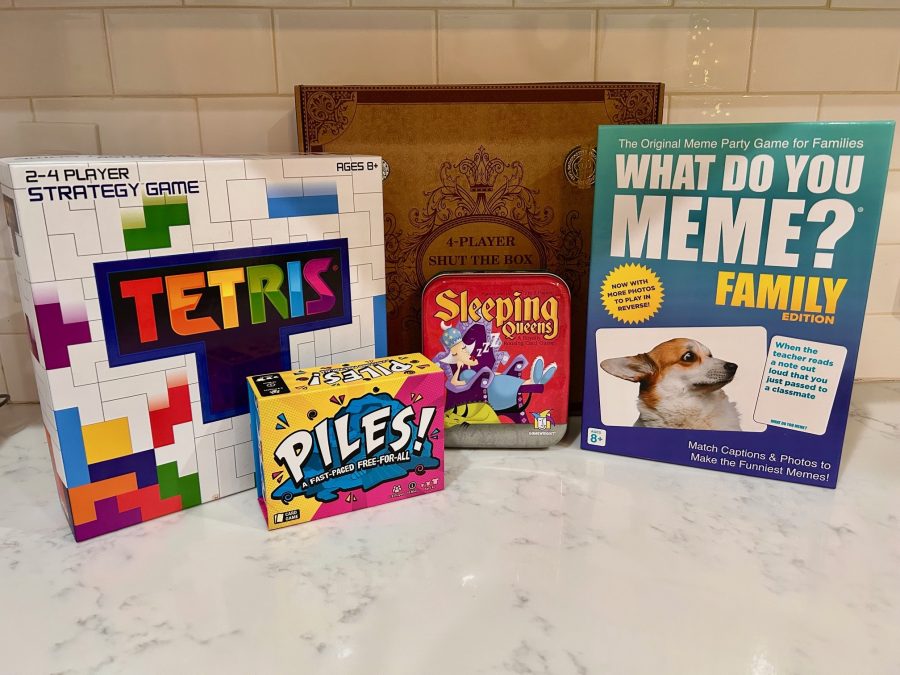Disclosure: This post is sponsored by Ochsner Baton Rouge and written by Kathleen Freeman, MD.
 How Can Parents Avoid Burnout?
How Can Parents Avoid Burnout?
We’ve all heard the proverbial metaphor about self-care: Put your oxygen mask on first then assist the child sitting next to you. I’m sure that, given the situation, I’d be perfectly capable of putting my mask on first. So why is it so hard to do it metaphorically? That’s a loaded question, but I think I know the answer.
We feel guilty tending to our own needs when the needs of those around us are so many. We care deeply about doing what is best for our children, showing love to our families and friends, and making good choices. We want to get it right. Unfortunately, that may translate to a to-do list that never ends or feels impossible.
When children are part of the equation, completed tasks are often just as quickly undone. We all know how it feels to finish the laundry only to see an ever-growing pile of dirty clothes piling up at our feet. Add the daily responsibilities of a world turned upside down by a pandemic, and you’ve got a recipe for burnout. Chronic stress, along with chronic sleep deprivation, can lead to a sense of total exhaustion and days that seem to flow one into the next – a feeling of burnout.
More often than we’d like to admit, burnout can lead to unhealthy coping strategies. The World Health Organization (WHO) defines burnout not as a disease, but an occupational phenomenon caused by chronic workplace stress and characterized by three dimensions:
- Feelings of energy depletion or exhaustion
- Increased mental distance from one’s job or feelings of negativism or cynicism related to one’s job
- Reduced professional effectiveness
WHO states that burnout refers “specifically to phenomena in the occupational context and should not be applied to describe experiences in other areas of life.” When your job (or one of your jobs) is caring for others, I would argue you’re just as vulnerable to this phenomenon. The good news is there are ways to turn things around.
We all want to find meaning and satisfaction in the work we do, including the work of parenting. As with most problems, the first step is recognizing something is wrong. Taking a little time to think about how you’re feeling and why you might feel that way is a powerful exercise. Journaling has helped me sort out my true thoughts and motivations. The simple act of identifying and naming our feelings can help provide us with necessary information about what is causing our exhaustion and burnout. Knowing how we feel is often the first step on the path to healing.
One of my favorite quotes on this comes from author and psychologist Susan David, Ph.D. She states, “I’m a major advocate of validating one’s own emotions. How you feel is how you feel. You shouldn’t judge yourself for your feelings. They are neither good nor bad – they just are. Your feelings reflect your emotional response to the world. However, it’s important not to confuse your feelings with reality itself or to let them dictate your actions. This is what I mean when I encourage people to see their emotions as data, not directives. Think of them as one data point among many to consider as you move forward.”
Once we identify how we feel, we can look for solutions. As a mother of five, a practicing physician, a daughter to aging parents and a small business owner, people often say they wonder how I do it all. The truth is that I’ve wondered the same thing. I am a sandwich generation member with a severe case of FOMO – fear of missing out. I’m no more immune to burnout than any other mom.
At various times, I’ve felt burned out both at work and home. I’ve felt like my days consisted only of responsibility and rarely any fun. Perhaps the worst has been times when there never seems to be enough of me to go around. These instances of burnout have left me feeling spread too thin and not great, or even good, at any of my endeavors. It’s something we hear a lot from moms – a “jack of all trades, master of none” situation.
For me, the answer to burnout involves more than a bubble bath. It takes more than stealing time for myself here and there. The answer has most often been about two things: setting boundaries and identifying priorities.
Boundaries are the worst nightmare of people-pleasers, but they are essential to creating a balanced life. For someone like me with a strong case of FOMO and an equally strong desire to please others, boundaries are easily eroded or just plain non-existent.
Something I have appreciated about age and experience is my growing comfort with the polite “no,” or “I wish I could, but I can’t.” That’s not always easy, but it’s easier than when I was younger, and it’s necessary. I wish I’d felt empowered to set boundaries for myself much earlier, but I think as women – perhaps just as people – we’re convinced we have something to prove.
We’re equally convinced that saying “yes” to everything and everyone is the best way to prove it. The problem is that when we try to be everything to everyone, there isn’t anything left for ourselves. Our identities, sense of self and self-worth can get lost in the daily grind. That brings us to the next topic: priorities.
When setting boundaries that leave enough space for us to serve ourselves and others, we must figure out where our priorities lie. This has been huge. It turns out that time is our most valuable resource. It is finite and can’t be renewed or recreated. How we spend our time matters, because a “yes” to one thing inevitably means a “no” to something else.
Mindfulness may be an overused word, but that is what this concept boils down to. When I feel burned out, it usually means that I have started living moment to moment, rushing from one task to the next, or worse, multitasking and not being mindful of where I’m investing my time. I get burned out when I stop considering my priorities.
The only solution to these hamster-wheel moments is pumping the brakes. I must stop and sit down to make a list of what’s most important to me and why. What follows is a list of changes needed to make me more authentic to those priorities. As a working mom, I’m often mentally consumed with things outside of my home.
Pumping the brakes usually turns up a need to focus some attention and intention on uninterrupted time for my family. My feeling of mommy burnout is sometimes paradoxically fixed by leaning more into mothering. The kids are driving me nuts because I can’t respond to an email with them chattering in my ear. This is a pattern. The fix is my undivided attention. A “no” to the email, a “yes” to the kids. A “no” to full-time work, a “yes” to being there for carpool and homework. It is a “no” to the extra money for a vacation and a “yes” to the spare time together every weekday.
A friend told me her evenings were impossible until she finally let go of her perceived need to cook a meal every night for her family. She wanted healthy food, but quiet, quality time together in the evenings was her top priority. She paused to look for resources and found Ingle Eats. She now spends time with grocery shopping, planning and cooking to unwind with her boys. What was best was a “no” to making dinner herself and a “yes” to calmer evenings.
My priorities aren’t yours or anyone else’s. Our solutions to burnout are not the same. It reflects our individual priorities that spark changes that lead to renewed energy and purpose in our work as moms, whether they’re additions or subtractions. I’ve added uninterrupted time to give attention to my kids. I subtracted hours at work. A friend subtracted homemade meals. Another friend prioritized yoga class for herself on Saturdays.
While contemplating this article, I sought the perspective of a dear friend. She has six children at home, a husband with a busy job and a cute little dog named Sunny. She is the kind of mother and friend I always felt I could only aspire to be.
I’ve seen her make beautiful chore charts and colorful, weekly menus posted in her kitchen. She brings delicious homemade meals and snacks to other friends with newborns. She’s shown up for me when a child was seriously ill with a Glennon Doyle book and a batch of homemade cookies in hand. She volunteers at school. She started a school garden. You get the picture. She made it look easy, but it wasn’t. It never was.
She was burned out, unhappy and snappier than she wanted to be with the kids, and unsure how to make a change. She checked out graduate degree programs, met with a therapist and read lots of books. She shared with me that it gave her a new perspective on our time on Earth when the pandemic happened. When the threat of illness and death loomed larger than ever before, she said, “I finally just came to a place where I had to make myself and my health a priority. All of motherhood (her oldest is 15), I’ve told myself when the house is clean, when nothing else is scheduled and when no one in the whole wide world needs me, I’ll go to yoga or on a walk. Of course, with that criteria, it rarely happened. I had to finally believe that my health, physical and mental, is important to my whole family and me. Loving myself is loving my kids, not neglecting them. The better I take care of myself, the better I can care for them.”
I couldn’t have said it better. When we feel good, those feel-good emotions rub off on our families. Our emotions are contagious, for better or for worse. Putting on our oxygen mask first is the right thing to do.
Sometimes, what we think is burnout is something more, and it can be hard to know if we’re in a rut, suffering from burnout or wrestling with anxiety and depression. I’ll say to you what I’ve said to many of my patients who have turned to me for help. There is no shame in letting someone know we’re in over our heads. It’s a sign of great courage and personal insight to seek help. We’re fortunate to have so many incredible mental health professionals in our community. Nothing is truly hopeless, no matter how dire the present circumstances.
Being a mother is often overwhelming. There is no greater responsibility, and even the coolest cucumber gets frazzled at times. If you’d like to learn more about mental health resources, your primary care physician is a great place to start.


Learn more about Dr. Freeman: https://www.ochsner.org/doctors/kate-freeman
















